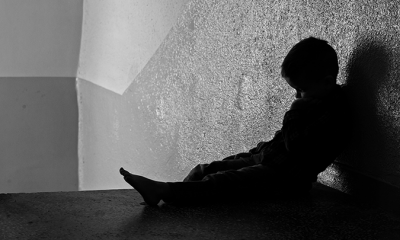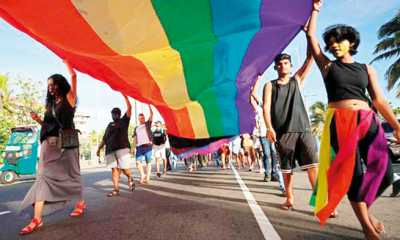Foreign News
India’s top court rejects appeal to legalise same-sex marriage
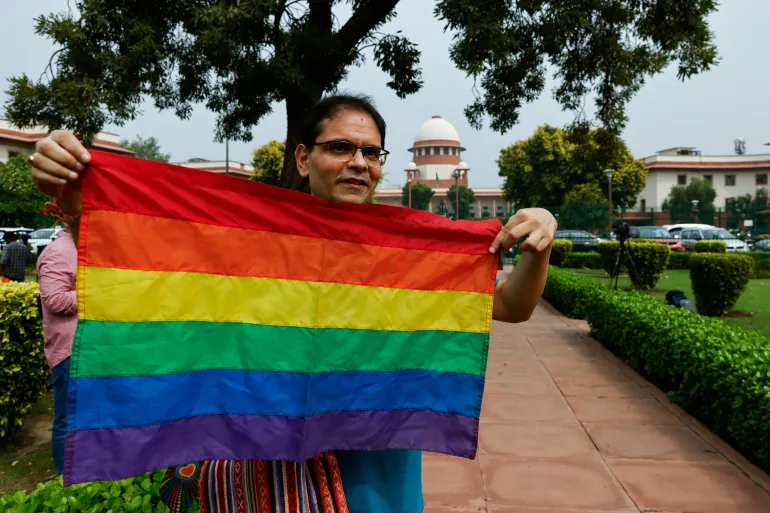
India’s Supreme Court has declined an appeal to legalise same-sex marriages in a blow for LGBTQ rights in the world’s most populous country.
The top court announced the ruling on Tuesday after hearing arguments in April and May, with three of five justices finding that the issue should be decided by parliament.
“The court, in the exercise of the power of judicial review, must steer clear of matters, particularly those impinging on policy, which fall in the legislative domain,” Chief Justice Dhananjaya Yeshwant Chandrachud said.
The court instead endorsed a government proposal to establish a panel to consider bestowing certain rights and benefits to same-sex couples.
Chandrachud said the state should provide some legal protections to same-sex unions, arguing that denying them “benefits and services” granted to heterosexual couples violates their fundamental rights.
“Choosing a life partner is an integral part of choosing one’s course of life,” he said.
“Some may regard this as the most important decision of their life. This right goes to the root of the right to life and liberty under Article 21 (of India’s constitution).”
Chandrachud said the government should also take steps to ensure LGBT people do not face discrimination, including by establishing hotlines and safe houses for those who are vulnerable and ending medical procedures that aim to change gender identity or sexual orientation.
The court’s ruling follows a petition arguing that the failure to recognise same-sex unions violated LGBTQ people’s constitutional rights.
India’s Bharatiya Janata Party government, led by Prime Minister Narendra Modi, opposed the petition, arguing the issue should be left to parliament and that a ruling legalising same-sex marriage would play “havoc” with societal values.
“Living together as partners and having sexual relationship by same sex individuals is not comparable with the Indian family unit concept of a husband, a wife and children”, the government said in a submission to the court.
Tuesday’s ruling comes five years after the country’s top court struck down a colonial-era ban on gay sex.
Asia, where traditional values hold sway in politics, has been slow to embrace LGBTQ rights. Taiwan and Nepal are the only places in the region that recognise same-sex unions.
(Aljazeera)
Foreign News
Belgian prince loses bid for benefits on top of £300k royal allowance
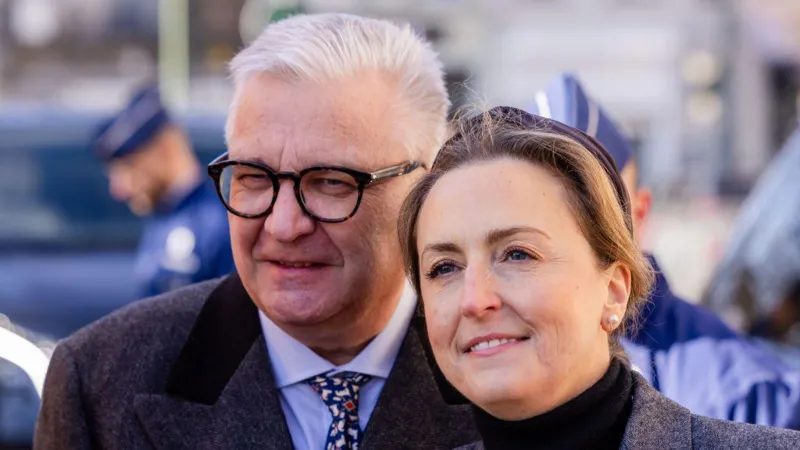
A Belgian prince’s attempt to claim social security benefits on top of his six-figure royal allowance has been rejected by a court.
Prince Laurent – the younger brother of King Philippe – received €388,000 (£295,850; $376,000) from state funds last year but said that his work entitles him and his family to social security.
He had argued that he was partly self-employed because of the duties he carries out as a royal, as well as running an animal welfare charity for the past decade.
Laurent, 61, said he was acting out of “principle” rather than for money. The court disagreed.
“When a migrant comes here, he registers, he has a right to social security,” he told Belgian broadcaster RTBF.
“I may be a migrant too, but one whose family established the state in place.”
But on Monday a court in Brussels turned down Laurent’s request on the grounds that the prince can be considered neither self-employed nor an employee.
However, according to broadcaster VTM the judge acknowledged that the prince should actually be entitled to a pension – but said gaps in legislation made that impossible and called for the law to be amended.
His lawyer, Olivier Rijckaert, told Belgian newspaper Le Soir that Laurent’s request had not been based on a “whim” and insisted on its symbolism, saying that social security is “granted by Belgian law to all residents, from the most deprived to the richest”.
Mr Rijckaert also said that most of the prince’s allowance is spent on his assistant’s salary and various travel expenses.
This means Laurent is left with about €5000 (£4300; $5500) a month but no social security benefits, such as the right to claim back some medical expenses.
The prince – who has three adult children with British-born wife Claire Coombs – has also expressed his concerns over his family’s wellbeing since the royal allowance will be cut when he dies.
Laurent took legal action against the Belgian state after his application for social security was refused. A first hearing was held in November 2024.
According to RTBF, the prince and his legal counsel have not yet decided whether to appeal the court’s decision.
Laurentm who is the 15th in the Belgian line of succession, is no stranger to controversy and is sometimes termed the prince maudit – the “cursed prince” – in Belgium.
In 2018, the Belgian federal parliament voted to dock his monthly allowance for a year after he attended a Chinese embassy reception without government permission, in full naval uniform.
He has also racked up several speeding fines and has been criticised for attending meetings in Libya when the late Muammar Gaddafi was still in power.
[BBC]
Foreign News
Rains add to misery in quake-hit Myanmar as death toll rises to 3,471
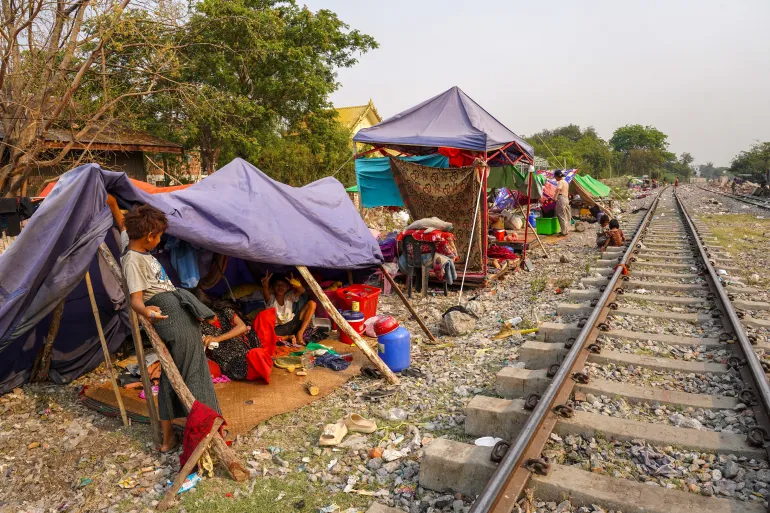
Heavy rains have lashed parts of earthquake-hit Myanmar, complicating relief efforts and raising the risk of disease as the death toll from the powerful quakes that struck the country on March 28 rose to at least 3,471.
Aid workers in the hard-hit city of Mandalay, near the epicentre of the earthquake, said on Sunday that rains and winds hit tent camps in the area overnight and in the morning, soaking survivors and their belongings.
More bouts of rain were expected later in the day, while temperatures were also forecast to climb to 37 degrees Celsius (98 degrees Fahrenheit).
“The weather is very extreme,” Tun Tun, a specialist with the United Nations Development Programme, told the AFP news agency.
Aid agencies have warned the combination of unseasonable rains and extreme heat could cause outbreaks of disease, including cholera, among quake survivors, who are camping in the open.
The magnitude 7.7 earthquake hit a wide swath of Myanmar, home to 50 million people, causing significant damage to six regions and states, including the capital, Naypyidaw.
It left many areas without power, telephone or mobile phone connections, and damaged roads and bridges, making the full extent of the devastation hard to assess. It also worsened an already dire humanitarian crisis triggered by the country’s civil war that has internally displaced more than three million people and left nearly 20 million in need, according to the UN.
State media in the military-led country now say the earthquake has caused 3,471 deaths and injured 4,671 people, while 214 remain missing.
It has damaged some 5,223 buildings, 1,824 schools, 4,817 pagodas and temples, 167 hospitals and clinics, 169 bridges, 198 dams and 184 sections of the country’s main highway.

Damage has been particularly severe in the city of Sagaing near the epicentre, as well as in Mandalay, Myanmar’s second-largest city.
UN aid chief Tom Fletcher, who is in Mandalay, described the scale of the damage as “epic” and said survivors, who are “traumatised and fearful”, need food, water, shelter and electricity urgently.
In a video posted to X, Fletcher noted the quake had brought devastation to communities that were already in crisis. “It’s a compounding crisis,” he said. “It’s earthquake, on top of conflict, on top of huge existing need.”
[Aljazeera]
Foreign News
Zimbabwe to scrap tariffs on US goods as it faces 18% Trump levy
Zimbabwe’s President Emmerson Mnangagwa has announced he will suspend tariffs on goods imported from the US in an attempt to build a “positive relationship” with President Donald Trump’s administration.
The move comes days after Trump imposed 18% tariffs on Zimbabwean exports to the US.
“This measure is intended to facilitate the expansion of American imports within the Zimbabwean market, while simultaneously promoting the growth of Zimbabwean exports destined for the United States,” Mnangagwa said on X.
Zimbabwe has had strained diplomatic relations with the US since it adopted a controversial land policy about 25 years ago, and because of its poor human rights record.
Trade between the two countries amounted to only $111.6m (£86.6m) in 2024, US government data shows.
The US exported goods worth $43.8m to Zimbabwe in 2024, up 10.6% from the previous year, while imports were down 41% to $67.8m.
Zimbabwean political analyst Tendai Mbanje told AFP news agency that the decision would not result in substantial economic benefits for Zimbabwe and would would only benefit the US.
Prominent Zimbabwean journalist and government critic Hopewell Chin’ono said the president appeared to be trying to “appease” the Trump administration.
Mnangawa possibly hopes that the administration would lift sanctions imposed on him, but it was a “long shot”, he added on X.
[BBC]
-

 Business2 days ago
Business2 days agoColombo Coffee wins coveted management awards
-

 Features3 days ago
Features3 days agoStarlink in the Global South
-

 Business4 days ago
Business4 days agoDaraz Sri Lanka ushers in the New Year with 4.4 Avurudu Wasi Pro Max – Sri Lanka’s biggest online Avurudu sale
-

 Business5 days ago
Business5 days agoStrengthening SDG integration into provincial planning and development process
-

 Business4 days ago
Business4 days agoNew SL Sovereign Bonds win foreign investor confidence
-

 Sports6 days ago
Sports6 days agoTo play or not to play is Richmond’s decision
-

 Features3 days ago
Features3 days agoModi’s Sri Lanka Sojourn
-

 Sports5 days ago
Sports5 days agoNew Zealand under 85kg rugby team set for historic tour of Sri Lanka


